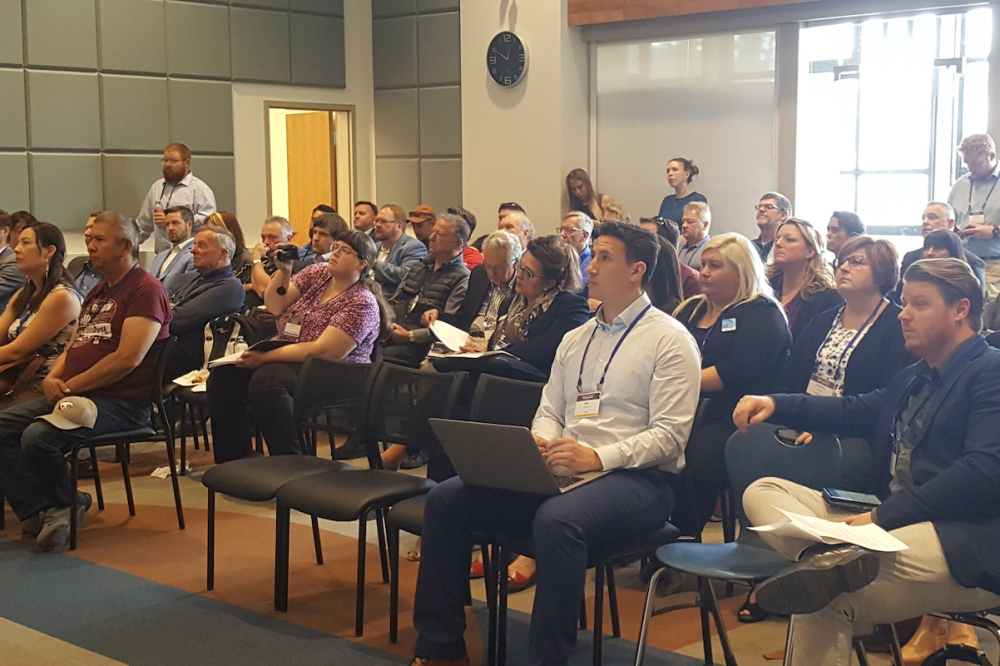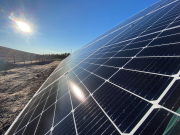As renewables have become cheaper than conventional generation, there have been fundamental shifts in the economics of electricity generation, while changing expectations of consumers and increasing climate action are driving greater investment in renewables and alternative energy.
“When we started, renewable was an alternative energy. But now it is has become a mainstream industry,” said Peter Casurella of the Southern Alberta Alternative Energy Partnership (SAAEP) as he kicked off the first Southern Alberta Energy Forum on May 15 in Fort Macleod.
"It makes sense for the environment, it makes sense for the taxpayers." - Greg Robinson, Town of Raymond
Co-hosted by the Pembina Institute and the SAAEP, the event convened over 60 stakeholders from local government, industry, service providers and non-profits, and included presentations and interactive discussions that explored the opportunities in renewables and alternative energy in southern Alberta. Industry experts shared emerging opportunities in Alberta for small-scale and large-scale wind and solar energy, energy efficiency, electric vehicles and charging infrastructure, and energy storage. These technologies come with multiple benefits, including local economic development and job creation, which are crucial for rural communities.
“It makes sense for the environment, it makes sense for the taxpayers,” said Greg Robinson, Director of Community & Economic Development for the Town of Raymond, about their solar installations on several buildings.
Several mechanisms are available for stakeholders interested in accessing funding and resources to capitalize on these opportunities. Financial institutions are increasingly offering more financing for renewable and efficiency projects, and with more experience, financing products for renewables will continue to improve and reflect the project realities.
 The event also highlighted some of the creative and productive partnerships already underway in Alberta. A collaboration between SAAEP, ATCO, schools, and all levels of government has resulted in the launch of Peaks to Prairies, the first comprehensive electric vehicle charging station network in Alberta. In addition, the Blackfoot Confederacy is partnering with Kainai Resources and EDF to install a 201.6 MW wind facility. Their benefit agreement includes community participation in construction, management and operations.
The event also highlighted some of the creative and productive partnerships already underway in Alberta. A collaboration between SAAEP, ATCO, schools, and all levels of government has resulted in the launch of Peaks to Prairies, the first comprehensive electric vehicle charging station network in Alberta. In addition, the Blackfoot Confederacy is partnering with Kainai Resources and EDF to install a 201.6 MW wind facility. Their benefit agreement includes community participation in construction, management and operations.
The forum’s full house shows a clear appetite among businesses, banks and local governments for renewables and alternative energy, Participants expressed a need for continued policy certainty in the electricity sector, and a desire for more engagement of this kind in order to learn about available opportunities and to connect with each other.









